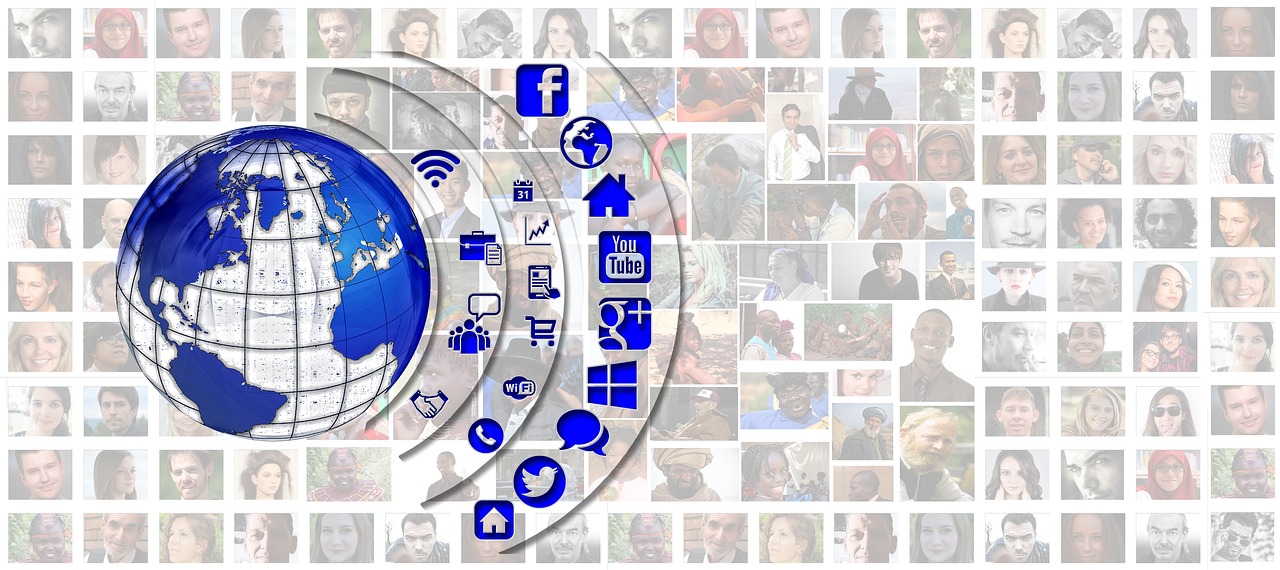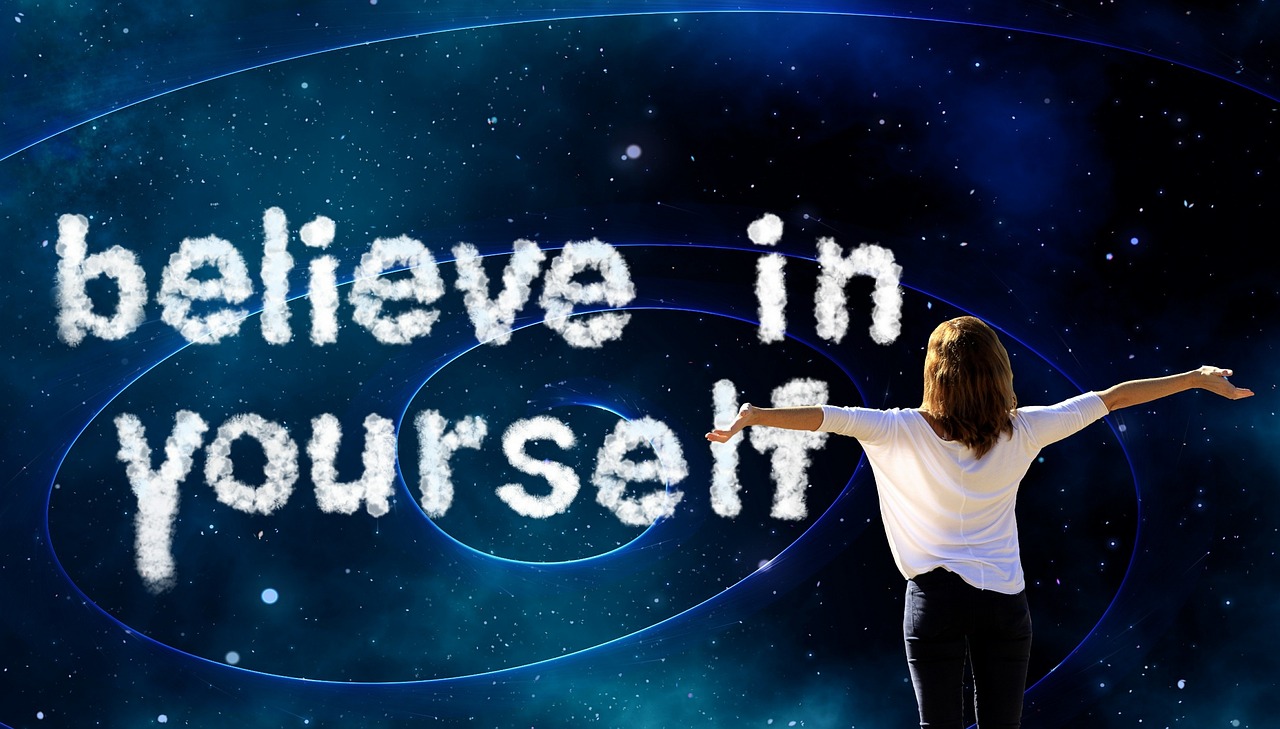Understanding the Conscious Ego
The concept of the conscious ego is a fascinating topic that dives deep into the essence of who we are. Have you ever paused to think about what makes you, *you*? This intricate part of our psyche plays a pivotal role in shaping our self-identity, influencing our thoughts, emotions, and actions in ways we often overlook. The conscious ego is like the captain of our ship, navigating through the turbulent waters of life, steering us based on our beliefs, experiences, and perceptions. Understanding this aspect of ourselves can open up a world of insights about how we relate to ourselves and the world around us.
At its core, the conscious ego is fundamentally linked to self-awareness. It’s that little voice in your head that helps you reflect on your thoughts and feelings, allowing you to recognize your existence and individuality. Imagine it as a spotlight that shines on your inner self, illuminating your values, desires, and motivations. This self-awareness is not just a passive experience; it actively shapes how we interact with our environment and the people in it. By examining the conscious ego, we can uncover the layers of our identity and understand how we fit into the grand tapestry of life.
But what exactly does the conscious ego do? It serves several essential functions:
- Self-Reflection: It allows us to ponder our experiences and learn from them.
- Decision Making: It influences our choices based on our values and beliefs.
- Emotional Regulation: It helps us manage our emotions in response to external stimuli.
- Social Interaction: It guides how we present ourselves to others and how we perceive their reactions.
As we embark on this journey to understand the conscious ego, we will explore its role in self-identity, decision-making, and the challenges it faces. This exploration is not just academic; it’s a personal journey that can lead to greater self-understanding and empowerment. So, buckle up, because understanding the conscious ego might just change the way you view yourself and your interactions with the world!
Here are some common questions about the conscious ego that might help clarify this complex topic:
- What is the conscious ego? The conscious ego is the part of our identity that is aware of itself and its surroundings, influencing our thoughts and actions.
- How does the conscious ego develop? It develops through experiences, social interactions, and cultural influences as we grow and learn.
- Can the conscious ego change? Yes, it can evolve based on new experiences, insights, and personal growth.
- What role does mindfulness play in understanding the conscious ego? Mindfulness helps enhance self-awareness, allowing individuals to better understand their conscious ego and its influences.

The Nature of the Conscious Ego
This article explores the concept of the conscious ego, its role in self-identity, and its impact on our thoughts, emotions, and behaviors in daily life.
The conscious ego is a fascinating aspect of our psychology, acting as the lens through which we view ourselves and the world around us. Imagine it as the director of a play, guiding the actors (our thoughts and emotions) and setting the stage for our interactions. At its core, the conscious ego is responsible for our self-awareness, allowing us to recognize our own existence and individuality. It helps us navigate our daily lives, making sense of our experiences and shaping our perceptions.
One of the fundamental characteristics of the conscious ego is its role in self-awareness. This self-awareness enables us to reflect on our thoughts, feelings, and actions. For instance, when you find yourself feeling anxious before a presentation, your conscious ego helps you identify that emotion and prompts you to consider why you feel that way. It's like having a personal coach in your mind, guiding you to understand your motivations and behaviors.
The conscious ego also plays a critical role in establishing our personal identity. It helps us form a narrative about who we are based on our experiences, beliefs, and values. This narrative is not static; it evolves as we encounter new experiences and challenges. Think of it as a book that gets new chapters added over time, reflecting our growth and changes. It’s this dynamic aspect of the conscious ego that allows us to adapt and redefine ourselves throughout our lives.
Moreover, our conscious ego is influenced by various factors, including social interactions and cultural background. Every conversation we have, every relationship we build, and every cultural context we immerse ourselves in contributes to how we see ourselves. For example, a person raised in a collectivist culture may have a different self-perception compared to someone from an individualistic background. This difference highlights the importance of understanding the conscious ego not just as a personal construct but as something shaped by our environment.
To illustrate this concept further, consider the following table that summarizes the key influences on the conscious ego:
| Influence | Description |
|---|---|
| Social Interactions | Relationships and societal expectations that shape our self-perception. |
| Cultural Background | Different cultural contexts that affect our identity and ego development. |
| Personal Experiences | Unique life events that contribute to our self-narrative. |
In conclusion, the conscious ego is not just a simple concept; it's a complex interplay of self-awareness, identity formation, and external influences. Understanding this nature can lead to deeper insights into our behaviors and motivations. So, the next time you reflect on your thoughts or decisions, remember that your conscious ego is at work, helping you navigate the beautiful chaos of life.
- What is the conscious ego? The conscious ego is the aspect of our psyche that involves self-awareness and personal identity, guiding our thoughts and behaviors.
- How does the conscious ego influence decision-making? It helps us reflect on our values and experiences, guiding our choices and actions in various situations.
- Can the conscious ego change over time? Yes, the conscious ego evolves as we have new experiences and adapt to different environments.

The Role of the Conscious Ego in Self-Identity
The conscious ego is like the captain of a ship, steering our identity through the turbulent waters of life. It plays a crucial role in shaping who we are, how we think about ourselves, and how we relate to others. Our beliefs, experiences, and perceptions all come together to form this intricate tapestry that is our self-identity. But what exactly does that mean? Let's dive deeper into how the conscious ego influences our understanding of ourselves.
At its core, the conscious ego is responsible for our self-awareness. It's that little voice in your head that says, "This is me!" It's what helps us recognize our strengths and weaknesses, our likes and dislikes, and our values. For instance, when you think about your favorite hobbies or the things that make you happy, it's your conscious ego that brings those thoughts to the forefront. This self-awareness is essential because it lays the groundwork for our self-concept—the overall picture we have of ourselves.
Now, consider how our experiences shape our self-identity. Every interaction, every challenge we face, and every success we achieve contributes to our conscious ego's development. For instance, if you had a positive experience in a team project at work, that success can enhance your self-esteem and reinforce your identity as a capable team player. Conversely, a negative experience can lead to self-doubt, making you question your abilities. This push and pull between positive and negative experiences is a natural part of life, but it can significantly affect how we see ourselves.
Moreover, the conscious ego doesn't develop in isolation; it thrives in social contexts. Our relationships with family, friends, and colleagues play a pivotal role in shaping our self-perception. For example, if you often receive praise from your peers for your creativity, you're likely to internalize that feedback, which can bolster your identity as a creative individual. On the flip side, criticism or neglect can lead to feelings of inadequacy. This dynamic creates a feedback loop where our conscious ego continually adjusts based on external input.
Additionally, cultural background is another significant factor that influences the conscious ego. Different cultures have varying norms, values, and expectations that can shape how we perceive ourselves. For instance, in collectivist cultures, the emphasis might be on community and family, which can lead individuals to define their self-identity in relation to their social groups. In contrast, individualistic cultures may encourage personal achievements and self-reliance, leading to a different self-concept. Understanding these cultural influences can help us appreciate the diverse ways in which people perceive their identities.
In summary, the conscious ego is a vital component of our self-identity. It helps us navigate our thoughts, emotions, and behaviors, influencing how we see ourselves in relation to the world around us. By recognizing the factors that shape our conscious ego—such as personal experiences, social interactions, and cultural background—we can gain deeper insights into our identities and, ultimately, foster personal growth.
- What is the conscious ego? The conscious ego is the aspect of our identity that involves self-awareness, self-perception, and the understanding of one's place in the world.
- How does the conscious ego influence self-identity? It shapes our beliefs, experiences, and perceptions, playing a crucial role in how we view ourselves and interact with others.
- Can social interactions affect the conscious ego? Yes, relationships and societal expectations significantly impact our self-perception and the development of our conscious ego.
- What role does culture play in shaping the conscious ego? Cultural background influences our values and norms, which can affect how we form our self-identity.

The Formation of Self-Concept
The formation of self-concept is a fascinating journey that intertwines our thoughts, experiences, and the world around us. Imagine your self-concept as a canvas, where each brushstroke represents a different experience or belief you've gathered throughout your life. From the moment we are born, we begin to absorb information and impressions that shape how we see ourselves. This process is dynamic, constantly evolving as we encounter new situations and relationships.
Our self-concept is not just a reflection of who we are, but also a lens through which we interpret our experiences. It encompasses our beliefs about our abilities, our worth, and our place in the world. For instance, if you’ve always been told you’re great at sports, that belief can become a significant part of your self-concept, influencing your confidence and decisions in related areas. On the flip side, negative experiences can lead to limiting beliefs that hinder personal growth.
To better understand this formation, let’s break it down into a few key components:
- Personal Experiences: Each encounter, whether positive or negative, adds to our self-concept. Think of your first day at school or that time you aced a presentation—these moments leave lasting impressions.
- Social Feedback: The reactions of others play a crucial role. When friends or family praise us, it reinforces our self-image. Conversely, criticism can chip away at our self-esteem.
- Internal Dialogue: The way we talk to ourselves matters. Positive affirmations can strengthen our self-concept, while negative self-talk can weaken it.
Moreover, our self-concept is often influenced by societal norms and expectations. These external factors can create pressure to conform, leading us to adopt identities that may not truly reflect who we are. For example, someone might feel compelled to pursue a particular career because it’s seen as prestigious, even if it doesn’t align with their passions or values. This dissonance can create internal conflict, as the conscious ego struggles to reconcile external expectations with personal desires.
In essence, the formation of self-concept is a complex interplay of internal and external influences. It’s like crafting a unique recipe; each ingredient—whether it’s a personal triumph or a societal expectation—adds flavor to our identity. Understanding this process can empower us to take charge of our self-concept, allowing us to redefine who we are and who we want to be.
- What is self-concept? Self-concept is the perception one has of oneself, encompassing beliefs, experiences, and values that shape personal identity.
- How does self-concept affect behavior? A positive self-concept can lead to confidence and proactive behavior, while a negative self-concept may result in self-doubt and avoidance.
- Can self-concept change over time? Yes, self-concept is dynamic and can evolve with new experiences, relationships, and personal growth.

Influence of Social Interactions
Social interactions play a pivotal role in shaping the conscious ego, acting as a mirror that reflects our self-perception and identity. Think of it this way: just like a sculptor chisels away at a block of marble, our relationships with others help to carve out who we are. Every conversation, every shared experience, and even every disagreement contributes to the ongoing development of our self-identity. When we engage with others, we not only express our thoughts and feelings but also receive feedback that influences our understanding of ourselves.
The impact of social interactions can be both positive and negative. On one hand, supportive relationships can bolster our self-esteem and reinforce a positive self-image. For instance, when friends or family celebrate our achievements, it validates our sense of worth and strengthens our ego. Conversely, negative interactions, such as criticism or rejection, can lead to self-doubt and a distorted self-image. This duality highlights the importance of surrounding ourselves with uplifting individuals who encourage our growth.
Moreover, the context of our social interactions can further complicate matters. For example, in a workplace setting, professional relationships often dictate how we view ourselves in terms of competence and success. If we frequently receive praise from colleagues, our conscious ego may flourish; however, if we face constant scrutiny, it may lead to feelings of inadequacy. The table below illustrates how different types of social interactions can influence our self-perception:
| Type of Interaction | Potential Impact on Conscious Ego |
|---|---|
| Positive Reinforcement | Boosts self-esteem and confidence |
| Constructive Criticism | Encourages growth but may cause temporary discomfort |
| Negative Feedback | Can lead to self-doubt and a weakened self-image |
| Isolation | May result in feelings of loneliness and disconnection from self |
Additionally, social norms and expectations can shape our conscious ego. We often find ourselves adapting our behaviors to fit in with different groups, which can lead to a fragmented sense of self. For instance, the way we present ourselves in a professional environment may differ vastly from how we act with close friends. This adaptability can create internal conflicts as we navigate between various identities, ultimately influencing our self-perception.
In conclusion, the influence of social interactions on the conscious ego is profound and multifaceted. By understanding how our relationships shape our self-identity, we can become more intentional about the connections we cultivate. Surrounding ourselves with positive influences and being mindful of how we engage with others can significantly enhance our conscious ego, leading to a healthier self-perception and overall well-being.

Impact of Cultural Background
The on the conscious ego is profound and multifaceted. Culture shapes our beliefs, values, and behaviors, often in ways we may not even be aware of. Think of culture as a lens through which we view the world; it colors our perceptions and influences our self-identity. For instance, individuals raised in collectivist cultures, where community and family are prioritized, may develop a conscious ego that emphasizes interdependence and social harmony. In contrast, those from individualistic cultures often cultivate a sense of self that values personal achievement and independence.
Furthermore, cultural narratives play a significant role in shaping our self-concept. These narratives can be seen in various forms, such as folklore, religion, and societal norms. They provide a backdrop against which we measure our successes and failures. For example, a person from a culture that celebrates entrepreneurial spirit may feel a strong drive to innovate and take risks, while someone from a culture that values tradition might prioritize stability and conformity.
To illustrate, consider the following table that highlights some key differences in how cultural backgrounds can influence the conscious ego:
| Cultural Aspect | Collectivist Cultures | Individualistic Cultures |
|---|---|---|
| Focus | Community and relationships | Self and personal achievements |
| Self-Identity | Defined by group membership | Defined by personal accomplishments |
| Decision-Making | Consensus-driven | Autonomous |
| Emotional Expression | Reserved; prioritizes group harmony | Open; values self-expression |
Understanding these differences is crucial for recognizing how our conscious ego is molded by cultural influences. Moreover, as we navigate through different cultural contexts—whether through travel, education, or social interactions—we may find our conscious ego adapting and evolving. This adaptability can lead to a richer self-identity but may also create internal conflicts as we reconcile differing cultural expectations.
In essence, the on the conscious ego is not merely an academic concept; it is a lived experience that shapes our daily interactions and self-perception. By becoming aware of these influences, we can better understand ourselves and others, fostering a sense of empathy in an increasingly interconnected world.
- What is the conscious ego? The conscious ego refers to our self-awareness and identity, encompassing our thoughts, beliefs, and perceptions about ourselves.
- How does culture influence the conscious ego? Culture impacts our values, beliefs, and behaviors, shaping how we view ourselves and interact with others.
- Can the conscious ego change over time? Yes, the conscious ego can evolve as we encounter new experiences, cultures, and personal growth opportunities.
- What are some ways to strengthen the conscious ego? Mindfulness practices, self-reflection, and engaging with diverse cultural perspectives can help enhance self-awareness and strengthen the conscious ego.

The Conscious Ego and Decision-Making
The conscious ego plays a pivotal role in how we make decisions every day. Think of it as the captain of a ship navigating through the tumultuous waters of life. With every choice we face, our conscious ego evaluates the situation, weighing our values, beliefs, and past experiences to steer us in the right direction. It’s not just about making choices; it’s about understanding why we choose what we do. Have you ever wondered why you opted for one restaurant over another or why you decided to take a particular job? These decisions are often influenced by the intricate workings of your conscious ego.
At its core, the conscious ego is deeply tied to our self-awareness. It’s that inner voice that reminds us of our personal values and aspirations. When faced with decisions, this voice can either empower us or create doubt. For instance, imagine you’re at a crossroads between pursuing a stable job that pays the bills and chasing a passion that ignites your soul. Your conscious ego will reflect on your self-identity, helping you navigate through the potential outcomes of each choice. This process is not merely cognitive; it’s emotional and instinctive, intertwining our feelings with our thought processes.
Moreover, the conscious ego is influenced by external factors, such as societal norms and peer pressure. We often find ourselves making decisions that align with what others expect from us, rather than what we truly desire. This can lead to a disconnect between our authentic selves and the roles we play in society. For example, if everyone around you is pursuing higher education, you might feel compelled to follow suit, even if it doesn’t resonate with your personal goals. Here, the conscious ego must grapple with societal expectations versus personal aspirations, creating a complex decision-making landscape.
To illustrate this further, let’s consider a simple table that outlines the factors influencing our decision-making process:
| Factor | Description |
|---|---|
| Self-Awareness | Understanding one's values and beliefs that guide decisions. |
| Past Experiences | Learning from previous choices and their outcomes. |
| Emotional State | How feelings can sway decision-making processes. |
| Social Influences | Impact of friends, family, and societal norms on choices. |
In addition to these factors, the conscious ego also plays a significant role in rationalizing decisions. After making a choice, we often find ourselves justifying it, sometimes even to the point of convincing ourselves that it was the best option available. This rationalization process can be both beneficial and detrimental. On one hand, it can help us feel better about our decisions, fostering a sense of confidence. On the other hand, it can lead to cognitive dissonance if we realize that our choices don’t align with our true desires or values.
Ultimately, the conscious ego is a dynamic entity that evolves with us. As we grow and experience life, our decision-making processes become more nuanced. We learn to trust our instincts, reflect on our choices, and adapt our strategies. This evolution is crucial for personal growth, as it allows us to align our decisions with our evolving self-identity. So, the next time you find yourself at a decision-making crossroads, take a moment to reflect on your conscious ego. What does it say about who you are and what you truly want?
- What is the conscious ego? The conscious ego refers to our self-awareness and the part of our identity that influences our thoughts, emotions, and decision-making processes.
- How does the conscious ego affect decision-making? It influences our choices by weighing personal values, beliefs, and past experiences, guiding us towards decisions that align with our self-identity.
- Can external factors impact my conscious ego? Yes, societal norms, peer pressure, and relationships can significantly shape how our conscious ego perceives and influences our decisions.
- How can I strengthen my conscious ego? Engaging in mindfulness practices, reflecting on your values, and being aware of your emotions can help enhance your conscious ego and improve decision-making.

Challenges to the Conscious Ego
The conscious ego, while a fundamental aspect of our identity, faces numerous challenges throughout our lives. These challenges can come from both external and internal sources, often leading to a struggle for self-identity and mental well-being. Imagine your ego as a delicate balloon floating high in the sky; external pressures, like strong winds or sharp objects, can threaten to pop it, while internal conflicts can cause it to deflate. Understanding these challenges is crucial for maintaining a healthy sense of self.
One of the most significant external pressures comes from societal expectations. We live in a world where social media often dictates what is considered "normal" or "successful." This constant bombardment of curated images and lifestyles can lead to feelings of inadequacy and self-doubt. When we compare ourselves to others, we might find ourselves questioning our worth and abilities, which can create a rift in our conscious ego.
Additionally, the workplace can be a breeding ground for challenges to the conscious ego. The pressure to perform, meet deadlines, and fit into a specific corporate culture can lead to stress and anxiety. When our professional identity becomes intertwined with our self-worth, any setbacks or failures can feel like a personal attack on our ego. It's essential to recognize that our job does not define us; rather, it is just one aspect of our multifaceted identity.
On the flip side, internal conflicts can be just as detrimental to the conscious ego. These conflicts often arise from unresolved past experiences or deep-seated beliefs about ourselves. For instance, if someone has experienced failure in the past, they may develop a fear of trying new things, leading to a cycle of stagnation. This fear can create a disconnect between our true selves and the persona we present to the world, causing confusion and frustration.
Moreover, cognitive dissonance plays a significant role in challenging the conscious ego. This psychological phenomenon occurs when our beliefs and behaviors are in conflict, leading to feelings of discomfort. For example, if we value honesty but find ourselves lying to avoid confrontation, the resulting tension can undermine our self-identity. Recognizing and addressing these inconsistencies is vital for restoring balance to the conscious ego.
In the face of these challenges, it’s crucial to develop strategies for resilience. Here are some effective methods to bolster the conscious ego:
- Self-Reflection: Regularly take time to reflect on your thoughts and feelings. This practice can help you identify the sources of your challenges and develop a clearer understanding of yourself.
- Seek Support: Surround yourself with supportive friends and family who can provide encouragement and perspective during tough times.
- Set Realistic Goals: Establish achievable goals that align with your values. This approach can help you maintain a sense of purpose and direction.
- Practice Self-Compassion: Be kind to yourself. Recognize that everyone faces challenges and that it’s okay to struggle.
Ultimately, navigating the challenges to the conscious ego requires a combination of self-awareness and proactive strategies. By acknowledging these challenges and actively working to address them, we can strengthen our self-identity and enhance our overall mental well-being.
Q1: What is the conscious ego?
A1: The conscious ego is the part of our identity that encompasses self-awareness, personal beliefs, and how we perceive ourselves in relation to the world.
Q2: How can societal expectations affect my conscious ego?
A2: Societal expectations can create pressure to conform, leading to feelings of inadequacy and self-doubt, which can challenge your self-identity.
Q3: What is cognitive dissonance?
A3: Cognitive dissonance is the mental discomfort experienced when our beliefs and behaviors conflict, often leading to a struggle within our conscious ego.
Q4: How can I strengthen my conscious ego?
A4: Strengthening your conscious ego involves self-reflection, seeking support, setting realistic goals, and practicing self-compassion.

Dealing with Ego Disruption
Dealing with disruptions to the conscious ego can feel like navigating through a storm without a compass. One moment you feel confident and self-assured, and the next, external pressures or internal conflicts can leave you feeling lost and disoriented. It's essential to recognize that these disruptions are a natural part of life, much like the waves that crash against a sturdy shore. The key is not to let them erode your sense of self but to learn how to ride those waves instead.
One effective strategy for managing ego disruptions is to cultivate self-awareness. This involves taking a step back and observing your thoughts and feelings without judgment. Have you ever found yourself in a situation where your emotions seemed to take over? Perhaps a heated argument or a stressful work deadline made you react impulsively. By practicing self-awareness, you can identify these triggers and understand how they affect your ego. When you recognize the patterns in your reactions, you can start to regain control over your responses.
Another important approach is to engage in self-reflection. This means taking the time to think deeply about your experiences, beliefs, and values. Ask yourself questions like, "What do I truly believe about myself?" or "How do my past experiences shape my current identity?" By reflecting on these aspects, you can better understand the roots of your ego disruptions and work toward a more stable self-identity.
Additionally, surrounding yourself with supportive relationships can significantly help in dealing with ego disruptions. Think of your close friends and family as your personal safety net. They can provide encouragement and perspective when you're feeling vulnerable. It's crucial to communicate openly with them about your feelings and struggles. Their insights can be invaluable in helping you regain your footing.
Mindfulness practices can also play a vital role in strengthening your conscious ego. Techniques such as meditation, deep breathing, or yoga can help ground you in the present moment, allowing you to observe your thoughts and feelings without becoming overwhelmed. When you practice mindfulness, you create a space where you can respond to disruptions with clarity and intention, rather than reacting impulsively.
In summary, dealing with ego disruption requires a multifaceted approach that includes self-awareness, self-reflection, supportive relationships, and mindfulness practices. By integrating these strategies into your life, you can not only navigate through the stormy waters of ego disruption but also emerge stronger, more resilient, and with a clearer sense of self. Remember, the conscious ego is not a fixed entity but a dynamic part of who you are, constantly evolving and adapting to life's challenges.
- What is ego disruption? Ego disruption refers to moments when our self-identity is challenged or shaken, often due to external pressures or internal conflicts.
- How can I strengthen my conscious ego? You can strengthen your conscious ego by practicing self-awareness, engaging in self-reflection, maintaining supportive relationships, and incorporating mindfulness techniques into your daily routine.
- Why is self-awareness important in dealing with ego disruptions? Self-awareness allows you to recognize your emotional triggers and patterns, enabling you to respond more thoughtfully rather than react impulsively.
- How does mindfulness help with ego disruptions? Mindfulness helps you stay grounded in the present, providing clarity and reducing the likelihood of being overwhelmed by negative emotions.

The Role of Mindfulness in Strengthening the Ego
Mindfulness has emerged as a powerful tool in today’s fast-paced world, providing individuals with the ability to ground themselves in the present moment. This practice is not just about relaxation; it’s about fostering a deeper understanding of our conscious ego. When we engage in mindfulness, we begin to peel back the layers of our thoughts and emotions, allowing us to observe them without judgment. This can significantly strengthen our ego by enhancing our self-awareness and promoting a more authentic self-identity.
The conscious ego thrives on clarity. It helps us navigate through the noise of daily life, enabling us to discern our true feelings from societal expectations. When we practice mindfulness, we cultivate a state of awareness that allows us to recognize our automatic reactions to situations. For instance, have you ever noticed how quickly you can react to a stressful situation? Mindfulness teaches us to pause and reflect, fostering a more deliberate response rather than an impulsive one. This shift can lead to healthier decision-making and ultimately a more robust self-identity.
Moreover, mindfulness encourages us to embrace our experiences, both positive and negative. By acknowledging our feelings without the need to suppress or deny them, we create a space for growth. This acceptance can significantly impact our conscious ego by allowing us to integrate all parts of ourselves, rather than fragmenting our identity into acceptable and unacceptable components. In this way, mindfulness acts as a bridge, connecting our internal experiences with our external expressions.
To illustrate the profound impact of mindfulness on the conscious ego, consider the following benefits:
- Enhanced Self-Awareness: Regular mindfulness practice helps individuals become more aware of their thoughts and feelings, leading to a better understanding of their ego.
- Improved Emotional Regulation: Mindfulness enables individuals to manage their emotions more effectively, reducing the likelihood of ego-driven reactions.
- Increased Resilience: By fostering a non-judgmental awareness of experiences, mindfulness cultivates resilience, allowing individuals to bounce back from challenges without losing their sense of self.
In addition to these benefits, mindfulness can also help individuals identify and challenge negative self-beliefs that may have been ingrained over time. As we become more mindful, we start to question the narratives we tell ourselves. Are they truly reflective of who we are? This questioning can lead to a more authentic self-concept, where the conscious ego is less influenced by external validation and more aligned with our true selves.
Incorporating mindfulness into daily routines doesn’t have to be complicated. Simple practices such as meditation, deep breathing exercises, or even mindful walking can create significant shifts in how we perceive ourselves. The key is consistency; the more we practice, the more we strengthen our conscious ego. Over time, this can lead to a profound transformation in how we interact with the world around us, ultimately leading to a more fulfilling and authentic life.
- What is mindfulness? Mindfulness is the practice of being fully present and engaged in the current moment, without judgment.
- How does mindfulness strengthen the ego? By enhancing self-awareness and promoting acceptance of experiences, mindfulness helps individuals develop a more authentic self-identity.
- Can mindfulness help with emotional regulation? Yes, mindfulness practices can improve emotional regulation, leading to healthier responses to stress and challenges.
- Do I need to meditate for long periods to experience benefits? No, even short, consistent mindfulness practices can yield significant benefits over time.
Frequently Asked Questions
- What is the conscious ego?
The conscious ego is essentially your self-awareness and identity. It's that part of you that recognizes your thoughts, feelings, and experiences, helping you navigate the world. Think of it as the captain of your ship, steering you through the vast ocean of life.
- How does the conscious ego influence self-identity?
Your conscious ego plays a pivotal role in shaping who you believe you are. It’s influenced by your experiences, beliefs, and perceptions. Just like a sculptor chisels away at a block of marble, your ego carves out your self-identity based on the interactions you have and the lessons you learn.
- Can social interactions affect my conscious ego?
Absolutely! Social interactions are like mirrors reflecting back to us who we are. The feedback we receive from others can significantly shape our self-perception and ego. It's as if every conversation and relationship adds a brushstroke to the canvas of our identity.
- What role does culture play in shaping the conscious ego?
Cultural influences are crucial in developing your conscious ego. They provide the context within which you define yourself. Different cultures have unique values and norms, which can either bolster or challenge your self-identity, much like different climates affect the growth of plants.
- How does the conscious ego impact decision-making?
Your conscious ego is a key player in your decision-making processes. It helps you weigh your personal values and self-awareness when faced with choices. Imagine it as your internal guide, helping you navigate the crossroads of life with clarity and intention.
- What challenges does the conscious ego face?
The conscious ego can encounter various challenges, including external pressures from society and internal conflicts within yourself. These challenges can lead to confusion about your identity, much like a stormy sea can toss a ship around, making it hard to find your direction.
- How can I deal with disruptions to my conscious ego?
Managing disruptions to your conscious ego is essential for personal growth. Strategies like self-reflection and seeking support can help you regain balance. Think of it as recalibrating your compass after a storm, allowing you to find your true north once again.
- What is the role of mindfulness in strengthening the ego?
Mindfulness practices can significantly enhance your conscious ego by fostering greater self-awareness. Techniques like meditation allow you to observe your thoughts and feelings without judgment, helping you build a stronger, more resilient sense of self—much like a tree that grows deeper roots during tough weather.



















